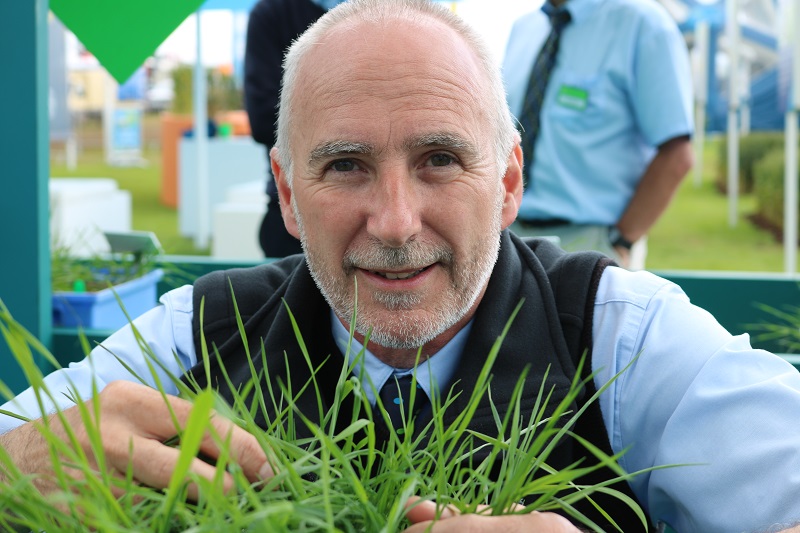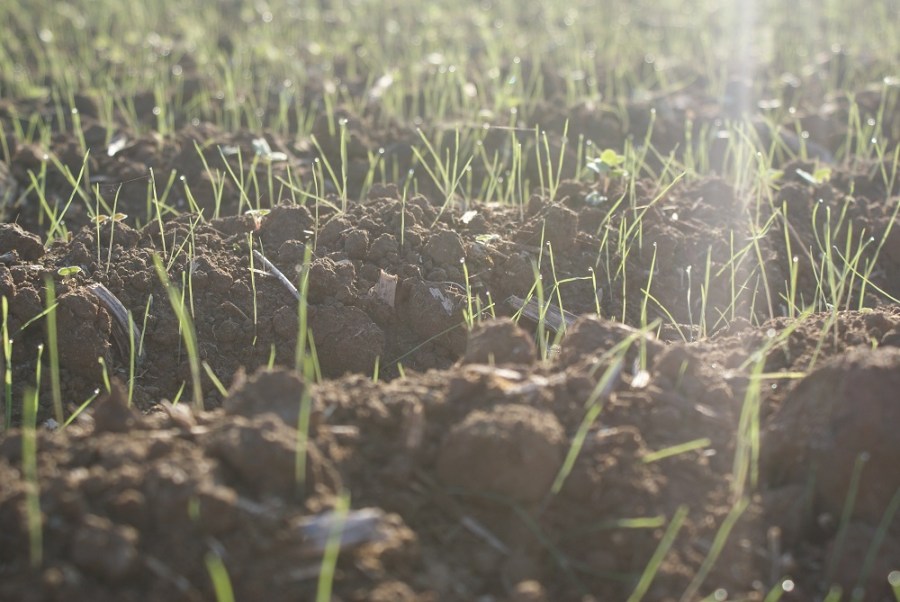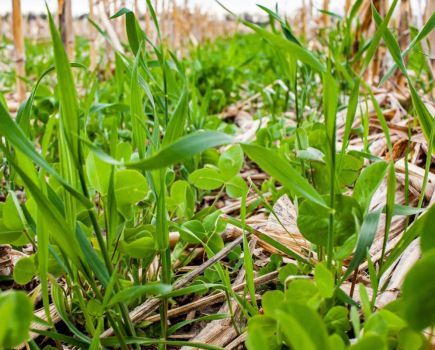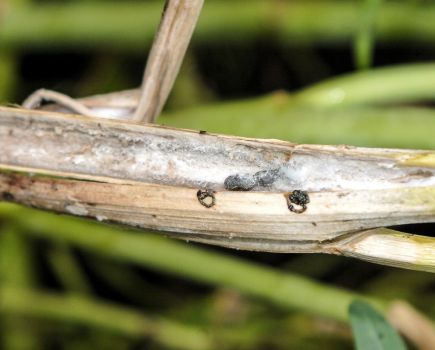Hamlet is set to take the lead role against blackgrass in the autumn, and puts in a strong performance as a supporting player in highly resistant situations. CPM surveys the scene.
The benefit is clear across the species.
By Tom Allen-Stevens
For growers who’ve suffered the slings and arrows of outrageous fortune, it’s time to take arms against a sea of troubles, suggests Bayer. Not by ending them, but by using the company’s new blackgrass herbicide.
Hamlet adds a dollop of diflufenican (DFF) to Atlantis (iodosulfuron+ mesosulfuron). Designed as an autumn-applied replacement for the leading post-emergence product, it’ll bring up to a 10% improvement in control over its predecessor and reduced variability, according to

Hamlet brings up to a 10% improvement in control over Atlantis says Gordon Anderson-Taylor.
Bayer development manager Dr Gordon Anderson-Taylor.
“That’s on difficult sites with high enhanced metabolism resistant (EMR) blackgrass, where average control from a single shot of Atlantis is currently around 47%,” he adds, citing results from Bayer’s 2015/16 weed-screen trials.
The Hamlet effect
But growers thinking they can get the same result by just adding a slug of DFF to their post-em Atlantis tank-mix will be disappointed, he states. “You don’t get the same effect – only Hamlet delivers it, according to our trials. DFF is not a blackgrass product, and as a residual partner to Atlantis, won’t deliver the extra 10% on its own.”
So what’s the difference here? Somewhat unsurprisingly, formulation plays a role – Hamlet is an advanced oil dispersion formulation that ensures an increased speed of uptake, says Bayer. There’s also slightly more iodosulfuron and less mesosulfuron, although it’s actually the latter that does the blackgrass bit.
 “The benefit of iodosulfuron is on broadleaf weeds, and ryegrass in particular. The DFF brings in some residual control of blackgrass and bromes and extends residual and contact broadleaf weed activity and spectrum,” notes Gordon Anderson-Taylor.
“The benefit of iodosulfuron is on broadleaf weeds, and ryegrass in particular. The DFF brings in some residual control of blackgrass and bromes and extends residual and contact broadleaf weed activity and spectrum,” notes Gordon Anderson-Taylor.
Again, trials bear this out, with Hamlet performing 5-20% better on bromes and ryegrasses than Atlantis. “The benefit is clear across the species. It also performs better than Unite (flupyrsulfuron+ pyroxsulam) – even a few per cent extra control can have quite an impact.”
Applied at up to 1.5l/ha, the best way to unleash your extra 10% efficacy is to use it after a good pre-emergence herbicide, and early in the season – trials on EMR blackgrass showed control dropped off by around 13% between growth stage 11 of the weed and GS23. Always use it with Biopower adjuvant, in a spray volume of 100-300 l/ha as a fine to medium spray, and mix in an effective residual partner, he advises.
More blackgrass
“You need extra flufenacet, pendimethalin or prosulfocarb, especially if you anticipate more blackgrass will germinate. We’ve found 0.3 l/ha of Liberator (flufenacet+ diflufenican) works best.”
But you may have to watch the DFF loading. A full rate of Hamlet applies 75g/ha of DFF. There’s no legal limit, but if sequenced with 0.6 l/ha of Liberator, you’ll be over the typical advisory limit of 120g/ha at which there may be harm to a following oilseed rape crop. “But if you break the DFF layer, there’s no danger, so the advice is to plough or cultivate to 15cm.”
Bayer is looking to replace all autumn-applied Atlantis (including up to end of Feb) with Hamlet, says product manager Ben Coombs. “The market’s shifted from 40% applied in the autumn to 30%, which we think is a result of more delayed drilling. Over the next few years, we will be introducing new products that will replace Atlantis for spring use.”
It’ll be priced on farm at a similar level to the equivalent in Atlantis plus DFF. But Hamlet will be launched into a world where ALS-inhibitor resistance is now widespread, he notes, so good stewardship will be essential for growers looking to retain its efficacy.
“For those with low to moderate levels of ALS-inhibitor resistance, the challenge will be to avoid burning Hamlet out. Where there’s a high level of enhanced metabolism resistance, Hamlet will still play a supporting role, and bring that 5-10% extra control.” As with Atlantis, however, it will have little effect on ALS target site resistant blackgrass, he notes.
Research from Bayer’s Weed Resistance Competence Centre has shown resistance doesn’t spread easily significantly between farms, nor within a farm or a field. But it is the practice of an individual farmer that largely determines how it develops within a blackgrass population.
“Diverse cropping, including spring crops, makes a huge difference. Delayed drilling and other cultural control measures should also be used to reduce weed numbers and ensure the chemistry is tackling a low population. Then ensure your chemistry programme is diverse and effective, starting pre-drilling with glyphosate and using a robust and dependable pre-em, based on Liberator, before applying Hamlet to complete the programme,” he advises.




